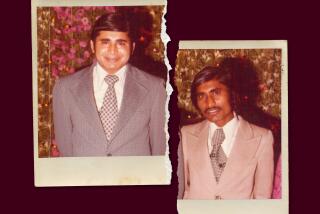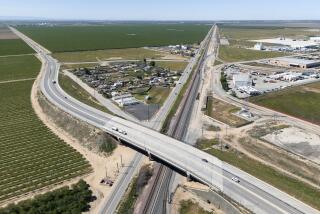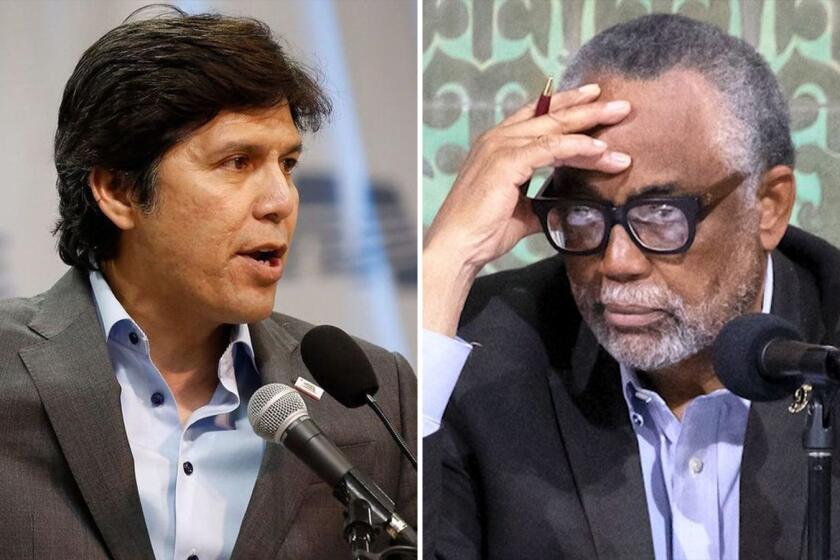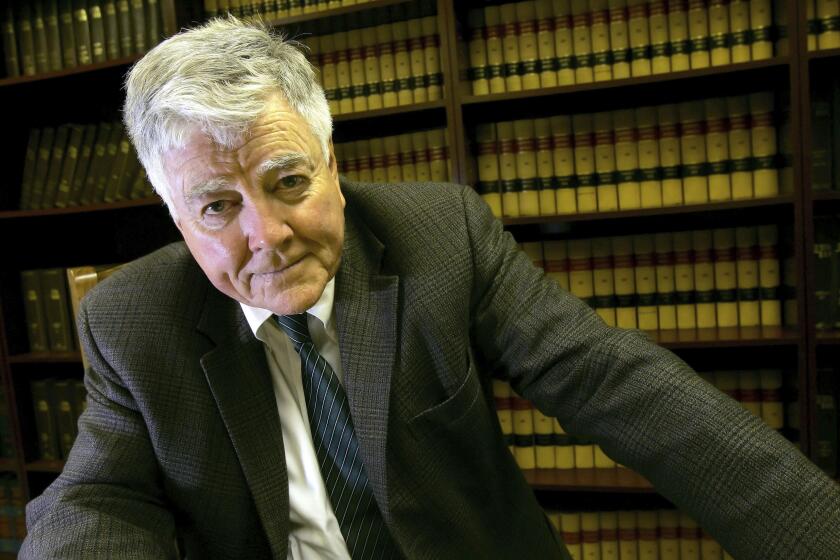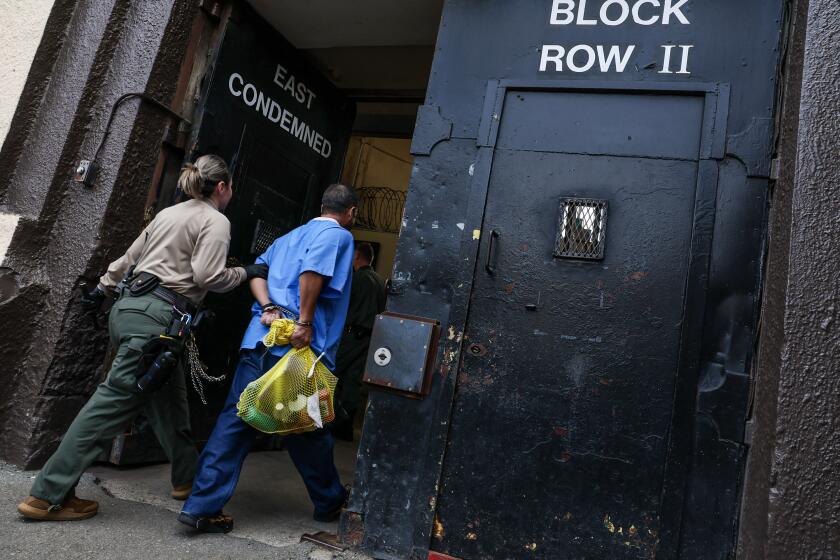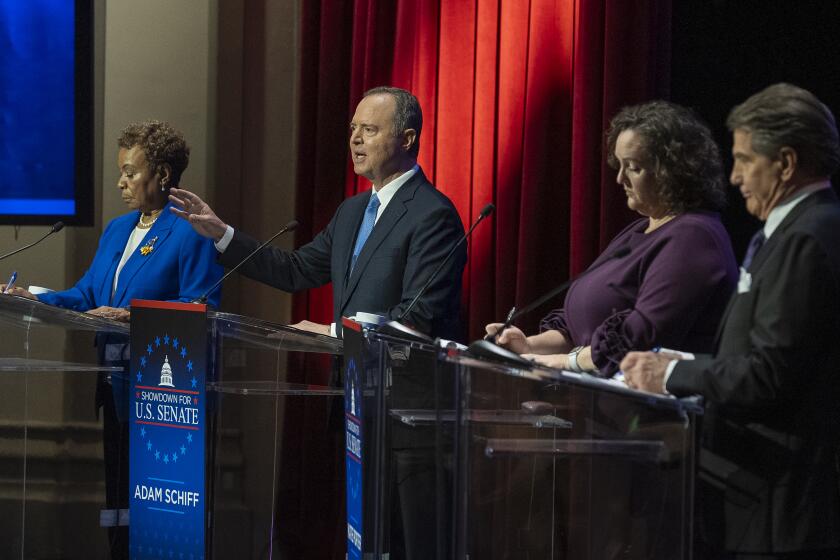Morrow’s Interest Causes Golding to Rethink Possible Mayoral Bid
After months of Hamlet-like indecision, San Diego County Supervisor Susan Golding appeared to be nearing an official declaration last week that she would not oppose Mayor Maureen O’Connor in June, but instead would simply seek reelection to her current seat.
However, the emergence of former San Diego City Councilman Floyd Morrow as a potential mayoral contender has significantly altered the dynamics of the race and, in the process, caused Golding, as she put it, to “rethink and reevaluate” her own possible candidacy for the city’s top elective post.
“This has really juggled things around and forced everyone to judge the race on new terms,” Golding said late last week. “It’s changed things substantially in the sense that if both Floyd Morrow and I are in the race, the election is not going to be decided in June. That’s a factor that wasn’t there before.”
Although Morrow has not officially entered the mayoral race, he indicated he was leaning in that direction when he took out nominating papers from the city clerk’s office last week to “make sure that we have options.”
Supporters Reinvigorated
In the special 1986 mayoral race to elect a successor to Roger Hedgecock, who resigned in the wake of his conviction on campaign-law violations, Morrow finished third behind O’Connor and then-San Diego Councilman Bill Cleator, with 19% of the vote.
Morrow’s preliminary steps toward another mayoral bid encouraged and reinvigorated Golding’s partisans, most of whom had concluded that her failure to declare her intentions as the March 10 filing deadline drew nearer meant she did not plan to try to move from the County Administration Center to City Hall this year.
From the beginning, Golding’s supporters viewed a three-way race as her best chance of success. Although more than a dozen minor candidates also are expected to run, Golding feared that if she and O’Connor were the only major contenders in the June 7 primary, it would be difficult to prevent the mayor from exceeding 50% of the vote--a figure that, if surpassed by any candidate in the primary, would eliminate the need for a November runoff.
“In a two-candidate race to be decided in three months, Maureen or any incumbent would have a decided advantage,” Golding argued. “But if you get past the primary, then you’d have five more months to raise issues and could run a much stronger campaign. . . . Since it began to look like Floyd might get in the race, the number of calls I’ve been getting has probably quadrupled. And some who were telling me before not to run have changed their mind.”
Wide Gap Doubted
The thinking in Golding’s camp now turns on this hypothetical numerical analysis: Assuming that Morrow again receives about 20% of the vote and that the minor candidates cumulatively draw between 5% and 10%, that would leave only about 70% of the vote to be divided between Golding and O’Connor.
Therefore, in order to top the 50% benchmark needed to avoid a runoff, O’Connor would have to outpoll Golding by a 2 1/2-to-1 margin. Despite O’Connor’s strong standing in current polls, Golding supporters doubt such a wide gap would separate the two candidates.
Even if Morrow enters the mayoral race, Golding concedes, she would face an uphill campaign against O’Connor. For that reason, Golding, who would have to relinquish her “safe” supervisorial seat to run for mayor, still may opt to remain at the county while biding her time until the 1992 mayoral race or until other political opportunities occur.
“I’m not sure it’s going to change my decision,” Golding said of Morrow’s recent actions. “It has just made the decision a little more difficult.”
More to Read
Start your day right
Sign up for Essential California for news, features and recommendations from the L.A. Times and beyond in your inbox six days a week.
You may occasionally receive promotional content from the Los Angeles Times.

